Interview: Jenny Koons Confers On Her Creative Process Marrying Deaf West With OEDIPUS
Next up at The Getty Villa, Sophocles' classic play Oedipus adapted by Jenny Koons, Andrew Morrill and Alexandria Wailes opening September 8, 2022
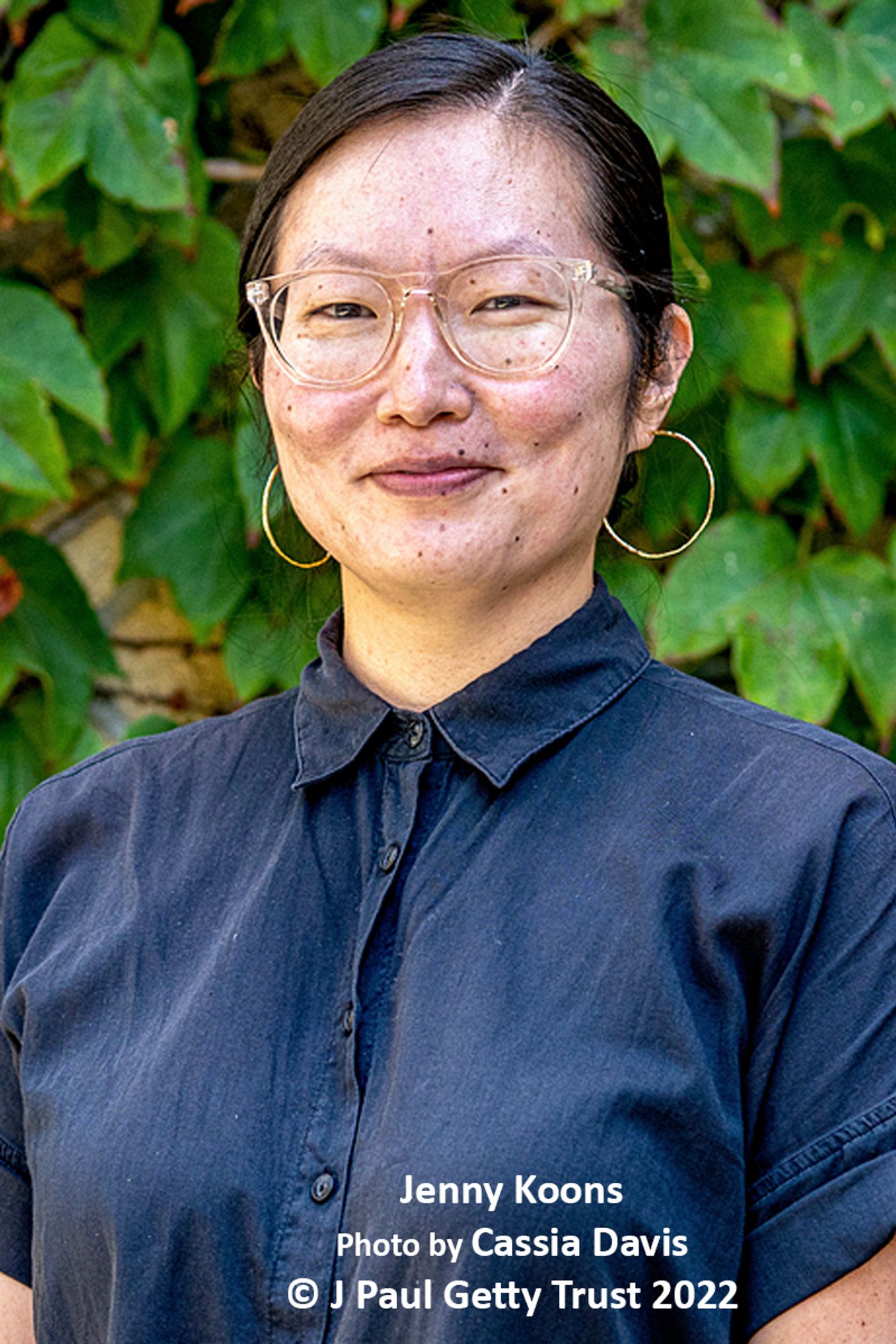
Next up at The Getty Villa, Sophocles' classic play Oedipus adapted by Jenny Koons, Andrew Morrill and Alexandria Wailes opening September 8, 2022. Jenny also does double duty directing the cast of Treshelle Edmond, Russell Harvard, Ashlea Hayes, Amelia Hensley, Matthew Jaeger, Gregor Lopes, Andrew Morrill, On Shiu, Alexandria Wailes, Akia Takara and Jon Wolfe Nelson.
I had a most illuminating phoner with Jenny on her preproduction collaboration with Deaf West.
Thank you for taking the time for this interview, Jenny!
Yes, of course!
What conversion of cosmic forces brought you together with Deaf West to adapt Oedipus?
All the cosmic forces! I've been in conversation with DJ Kurs the artistic director of Deaf West on the collaboration for a while. Actually in early 2020 right at the beginning of the COVID-19 pandemic, he reached out to me about this potential collaboration with the Getty Villa, and said, 'Would this be of interest to you? They do a Greek play every summer. And the only rule is, you can't do a play that they've already done. So take a look at the list and see if there's anything there that is interesting to you.' And weirdly, no one had done Oedipus. which I reread having not read since college days. In the first opening scenes of the play, you are met with a city in the midst of an illness that no one can solve. And in March and April 2020, reading that felt so eerie. It is about a city looking to political leaders to save it. I'm based in New York City and so this was the early days of Andrew Cuomo in those daily press conferences and trying to reassure people that a solution will be found. It's felt really eerily relevant to 2020.
Aside from working with an ASL interpreter, what else in your directing process have you adapted in working with Deaf West?
One of the great joys of this collaboration has been bringing on two ASL choreographers and adapters Andrew Morrill and Alexandria Wailes, and their associate Jonaz McMillan to be both part of the adaptation process and the translation. I knew that we would do an adaptation for this time we're in of the play. Bringing them on board meant that there was a collaboration of four of us exploring how this text is adapted to multiple languages and how to make sense of the multilingual world that we're creating on stage. Doing that alongside amazing adapters was like a complete gift.
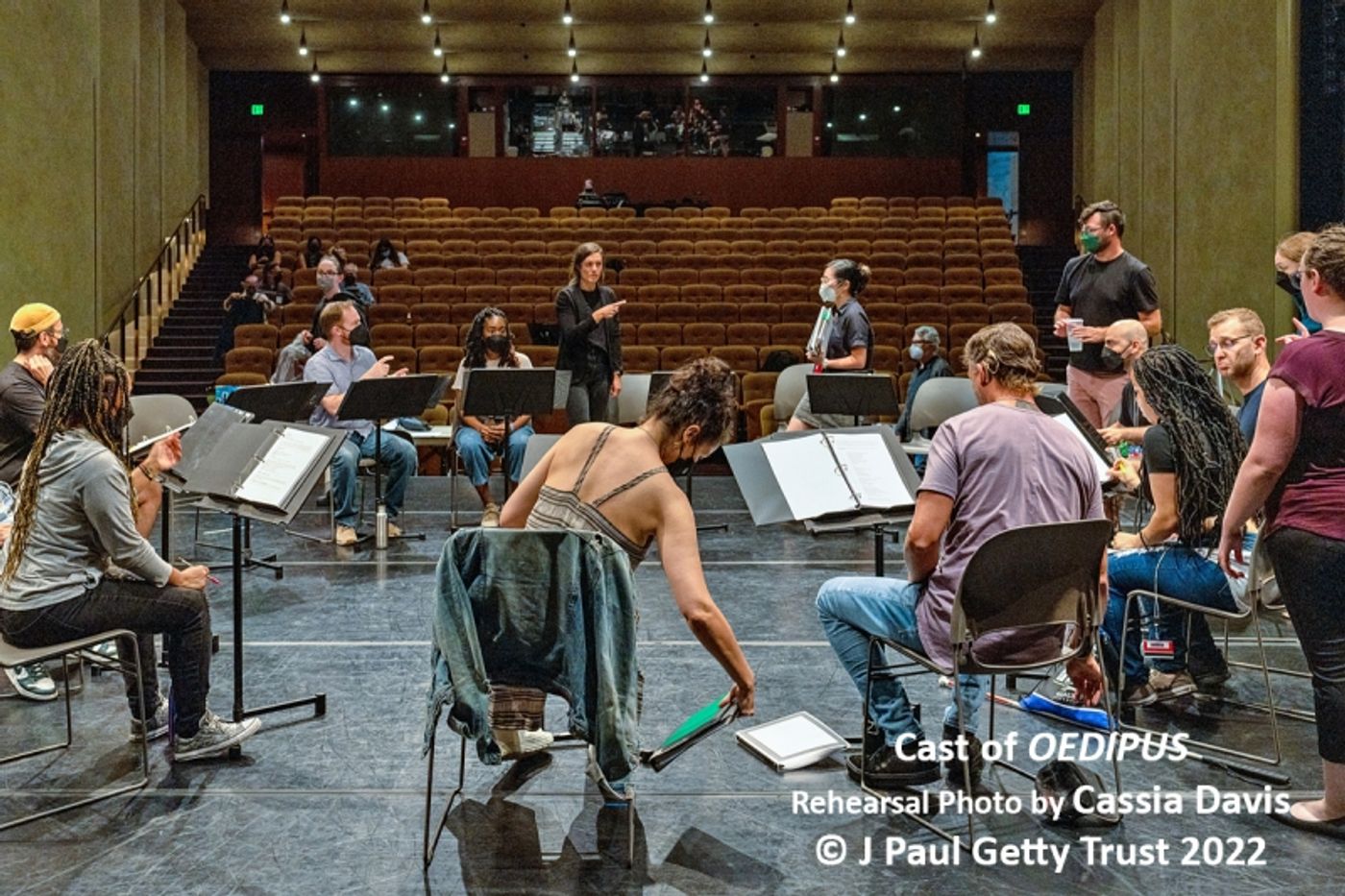 How long has the incubation period been for your development of this adaptation?
How long has the incubation period been for your development of this adaptation?
I would say when I reread the text in March and April 2020, that was probably the beginning of it. So probably a little over two years.
There's something about these epic stories, like the Greeks, like the Odyssey, like the Mahabharata, it's like these larger-than-life tales that feel particularly resonant right now when so much of our reality feels so heightened. You know, it's funny because I'm thinking of returning to these classics, which I feel more and more in the last few years I've been doing.
I've actually done a project in 2012 called The Odyssey Project, which was looking at the Odyssey in an everyday lens through Joseph Campbell's hero's journey. This year is the 10th year anniversary of that, so I'm like revisiting that as another part of a yearlong piece. There's something about these stories that have such heightened stakes and following characters who are both well-meaning and inherently flawed, that feels like it remains part of our very public narrative. I think now we see that mostly translated on film and television. But it's not for nothing in these years as we move through this pandemic time that we're returning to the classics again.
For those unfamiliar with the show, what is your three-line pitch for Oedipus?
Oedipus is kind of a classic true crime story about a man who needs to solve a murder in order to save the city.
That's a great pitch!
Yeah, right! I mean, here's the thing that's funny, Gil! I remember reading the play. I've seen the play a couple times. I thought it was a classic. When I reread it, I thought, 'Oh, this is like a 48 hours Mystery.' It's like people telling versions of a story while a man tries to put the pieces together before the entire city dies. That's the plot and yet I've never seen the story told in a way that felt as suspenseful as the play actually is. The other sentence I would add is that it's a man trying to both figure out and outrun a prophecy. And when I reread it, I was like, 'Oh, this is Game of Throne, House of Cards.' This is actually a very contemporary scene that we are really obsessed with. And yet, I had never felt that kind of tension necessarily when I'd seen the play before.
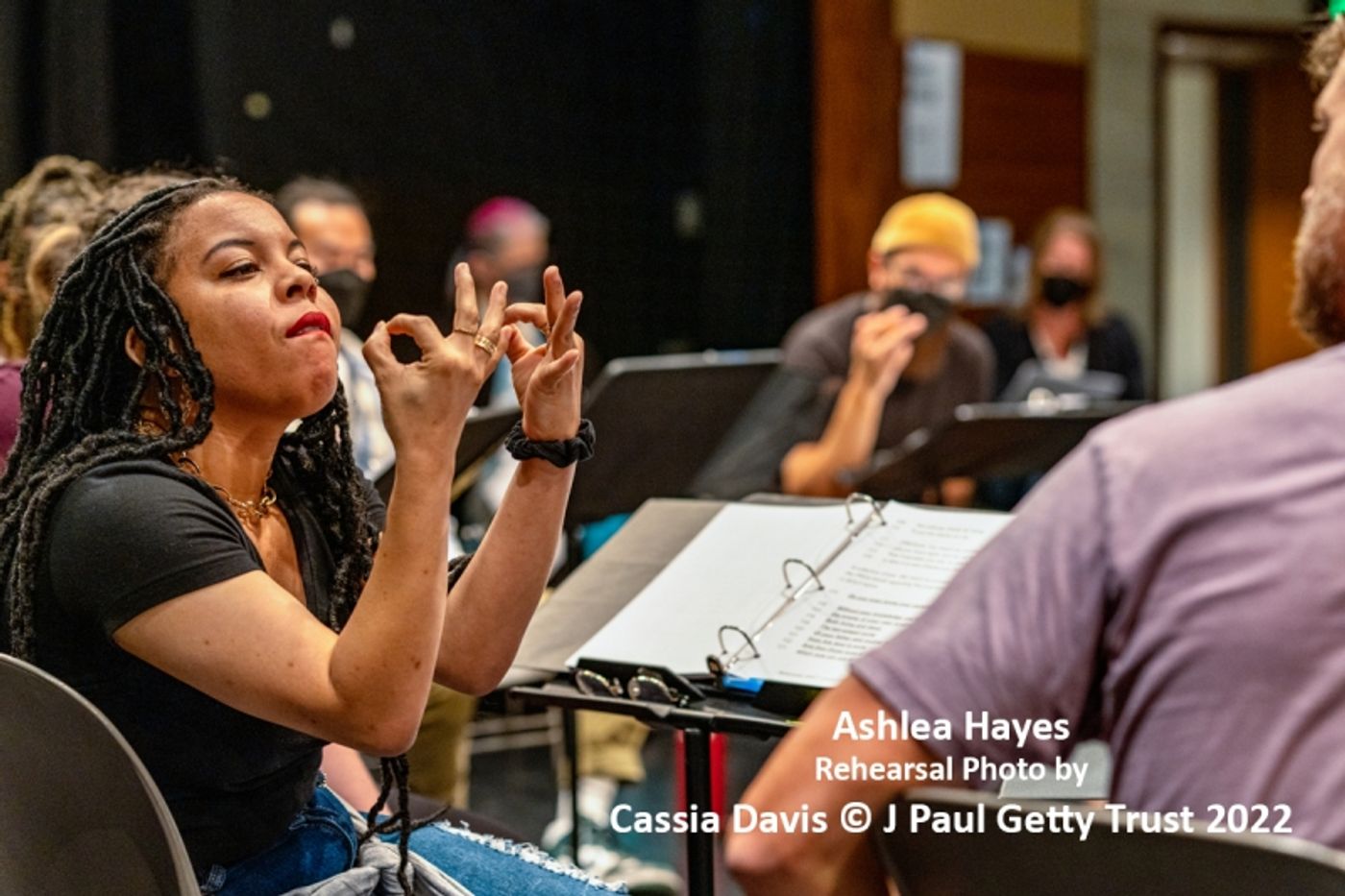 Your Version sounds very inviting. You are known for your immersive theatre projects (I saw your innovative immersive staging of Head Over Heels at Pasadena Playhouse last year). Will your cast be acting throughout the stadium seating of the Barbara and Lawrence Fleischman Theater?
Your Version sounds very inviting. You are known for your immersive theatre projects (I saw your innovative immersive staging of Head Over Heels at Pasadena Playhouse last year). Will your cast be acting throughout the stadium seating of the Barbara and Lawrence Fleischman Theater?
We have a few moments where the actors will definitely be in the audience. The other thing that I'm excited about with this production is it's the first time that the Getty has used large-scale projection and captioning. We have three very large and transformative screens on stage. One of the things that's exciting is bending the picture of that stage, which is both widescreen and like, has an enormous amount of depth. In a way it feels kind of like the same idea of immersive, where like the canvas is just much bigger. It's a fun and unusual stage to be working in nowadays to be honest. Not many places have that scale anymore.
Have you worked with any of this production's cast or creatives before?
Two of the designers were also on Head Over Heels, and I've known Alexandria Wailes, who is our Jocosta and ASL choreographer and adapter. We've known each other for probably over 10 years now. This is the first play we collaborated on with her as an actor. Maybe she's been a director of American Sign Language on a show that I've done before. I've been a fan of so many of the actors and have seen Spring Awakening obviously, and I've seen Russell Harvard who is amazing in a number of productions. So it's fun to see this group in this type of story, right because it's in an exciting way very different from other shows that Deaf West has done before.
What other shows of Deaf West have you seen?
I saw Spring Awakening obviously. And I've seen clips of Big River. In preparation for this production I was fortunate enough to see some archival of their previous shows. And just to see how the multilingual space has been embodied on stage in the past, which was so informative and helpful.
Do you sign yourself?
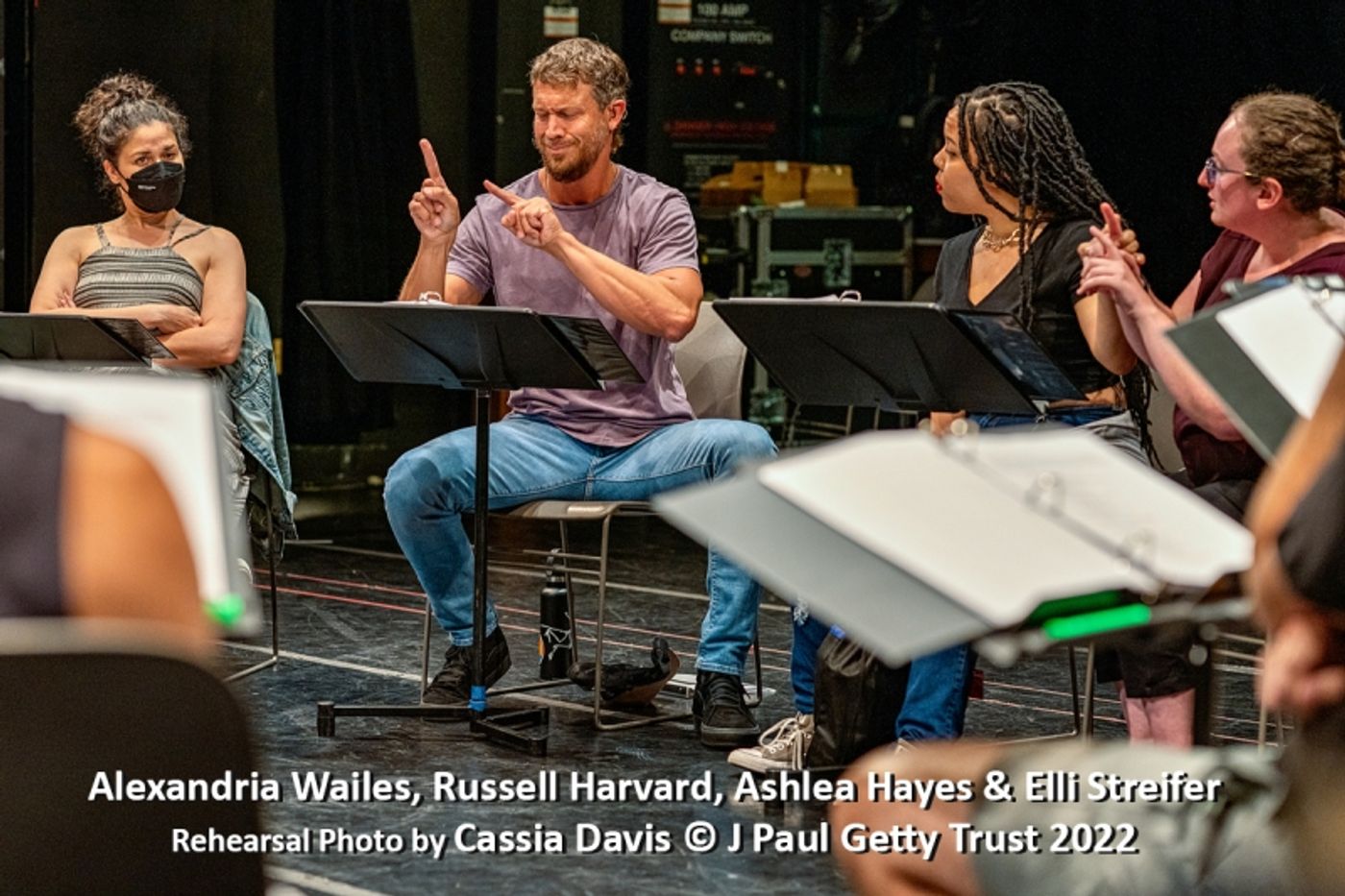 I don't. I can understand quite a bit, but I'm not anywhere close to a fluent signer. One of the things that's really exciting about our room is a pretty incredible interpreter team. Most days we have five interpreters in the room, three who are American Sign Language interpreters, and two who are Pro-Tactile interpreters. We have a deaf blind actress Ashlea Hayes in the cast, which is the first time that Deaf West has had a deaf blind performer. It's been a joyful experience figuring out how to really provide access to everyone in every part of our process and making sure that across five interpreters everyone is getting what they need.
I don't. I can understand quite a bit, but I'm not anywhere close to a fluent signer. One of the things that's really exciting about our room is a pretty incredible interpreter team. Most days we have five interpreters in the room, three who are American Sign Language interpreters, and two who are Pro-Tactile interpreters. We have a deaf blind actress Ashlea Hayes in the cast, which is the first time that Deaf West has had a deaf blind performer. It's been a joyful experience figuring out how to really provide access to everyone in every part of our process and making sure that across five interpreters everyone is getting what they need.
How big is your cast?
Eleven.
Do you have a number of understudies?
We have two understudies in the cast.
Which do you prefer: directing a cast in an ensemble? Or adapting a script in the solitude of your own space? Or do you adapt with a group of actors?
Great question. I love adapting with the actors. That's kind of the ideal. And right before I got on the call with you, I was revising the final scene of the play, and rewriting some of the lines to highlight some conversation we had about Oedipus in his last moments with the audience. All of that has really come through the conversations of the last three weeks. I think one of the things that's so exciting about a role of creators is that there is the ability to keep modifying and tailoring a piece to the actors themselves. And some of it you don't know until you see the whole thing. I had said for a long time, 'I don't know if we're really going to know what we want the last scene to be until we see the whole thing.' Because of the ways that we're playing with language, and you want to see them in some way play out or have a conclusion. It's fun to do that alongside people and also to highlight and underline people's unique talents in a way that feels more specific than you can do by yourself on your laptop.
Is your adaptations set in stone? If you were working with a different cast, would you adjust your adaptation?
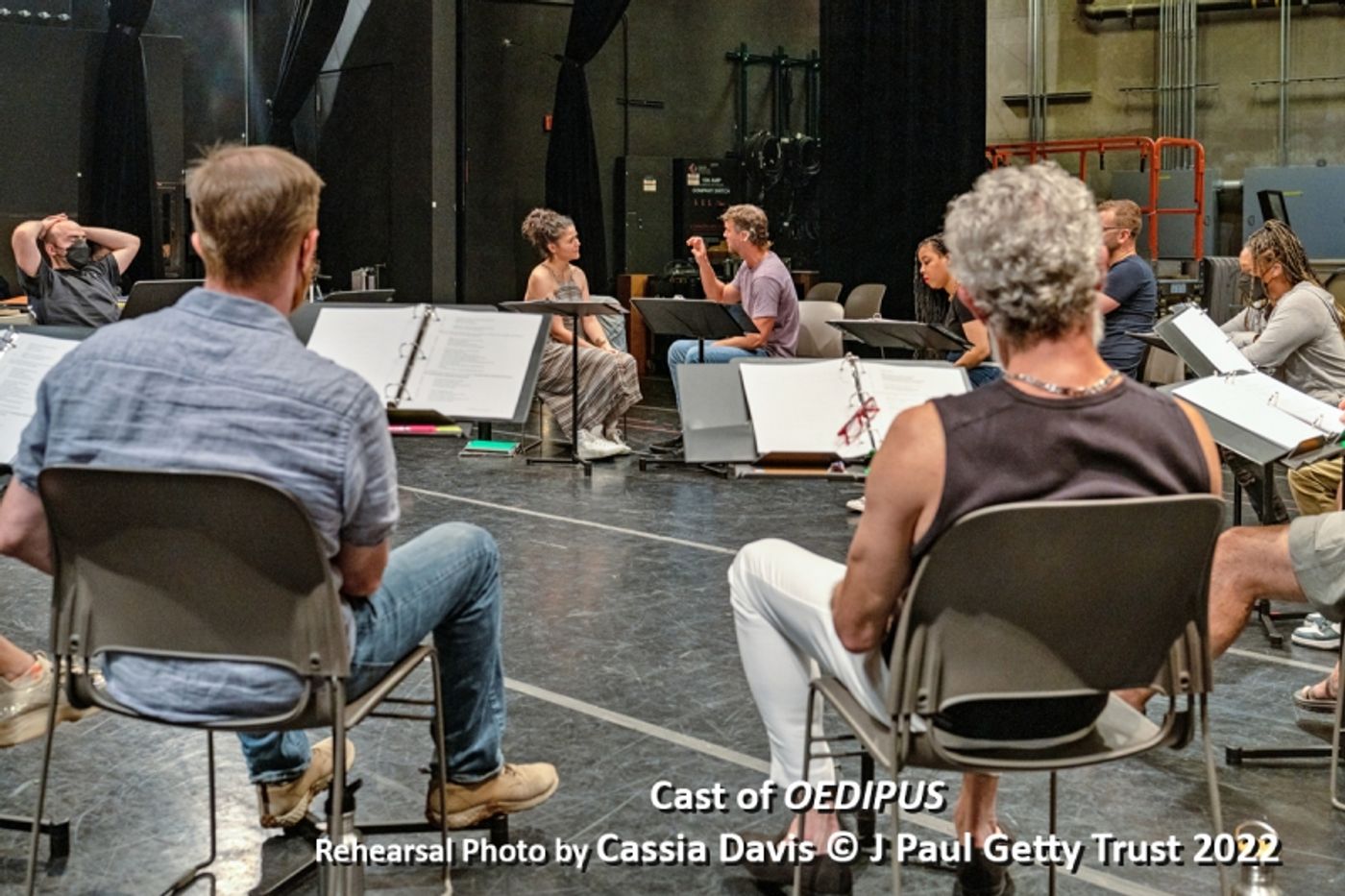 Yes, I think it'd be completely different. We have three languages on stage - English, American Sign Language and Pro-Tactile. We're using captioning and visual picture as ways to heightened certain moments and languages as well. A lot of that is based on the group of humans in the room and some of the amazing deafblind collaborators that we've had, and consultants we've had who've come in and given us advice on showing the character on stage and accurately representing a character on stage that's not often seen here. Tiresias the Prophet in Oedipus is a blind oracle. One of the very earliest conversations I had with DJ was what if we cast a deaf blind performer. I think the joy of adaptations for me is that you have the ability to showcase your performers. And if it were a different group of eleven, or even if we had three different performers in that group, I think it would have to shift in some way.
Yes, I think it'd be completely different. We have three languages on stage - English, American Sign Language and Pro-Tactile. We're using captioning and visual picture as ways to heightened certain moments and languages as well. A lot of that is based on the group of humans in the room and some of the amazing deafblind collaborators that we've had, and consultants we've had who've come in and given us advice on showing the character on stage and accurately representing a character on stage that's not often seen here. Tiresias the Prophet in Oedipus is a blind oracle. One of the very earliest conversations I had with DJ was what if we cast a deaf blind performer. I think the joy of adaptations for me is that you have the ability to showcase your performers. And if it were a different group of eleven, or even if we had three different performers in that group, I think it would have to shift in some way.
Would you define Pro-Tactile? I'm not familiar with that term.
Pro-Tactile is a language used primarily by deaf blind people. Also, obviously hearing and deaf people use it as well. It has elements of American Sign Language, and also uses the physicality of the body and touch as a way to communicate space, subject and is a unique language that is pretty incredible to communicate through and to witness on stage or in conversation. And our actor Ashlea Hayes has been very generous in sharing her culture and language with our group and figuring out how to best represent it and also make it artistic. It is in a way an artistic take on Pro-Tactile for the stage.
How would the sighted/hearing audiences distinguish between sign language and Pro-Tactile
One of the fundamental elements that our consultant Roberto (Cabrera) and Ashlea brought into rehearsal was the number one rule of Pro-Tactile is the ABC rule, which is 'Always Be in Contact.' It means in conversation or in the room, you're always in contact through touch. That would be one of the recognizable differences for a sighted audience, in seeing the different languages on stage.
You've been a facilitator and educator engaging in conversations around race and equity for over a decade. What accomplishment/change are you the most proud of in the creative field?
We're engaging in a level of conversation that feels deeper than it did a few years ago. The ability to tackle challenging conversations in art spaces is something we all should be proud of. Art spaces are at varying levels of their, on their journey of, of this engagement. And to be honest, I feel the moment we're in right now, we're seeing whether that dialogue communicate translates to action, and converts to action.
Does creating anti-racist spaces in theatre for you involve colorblind casting?
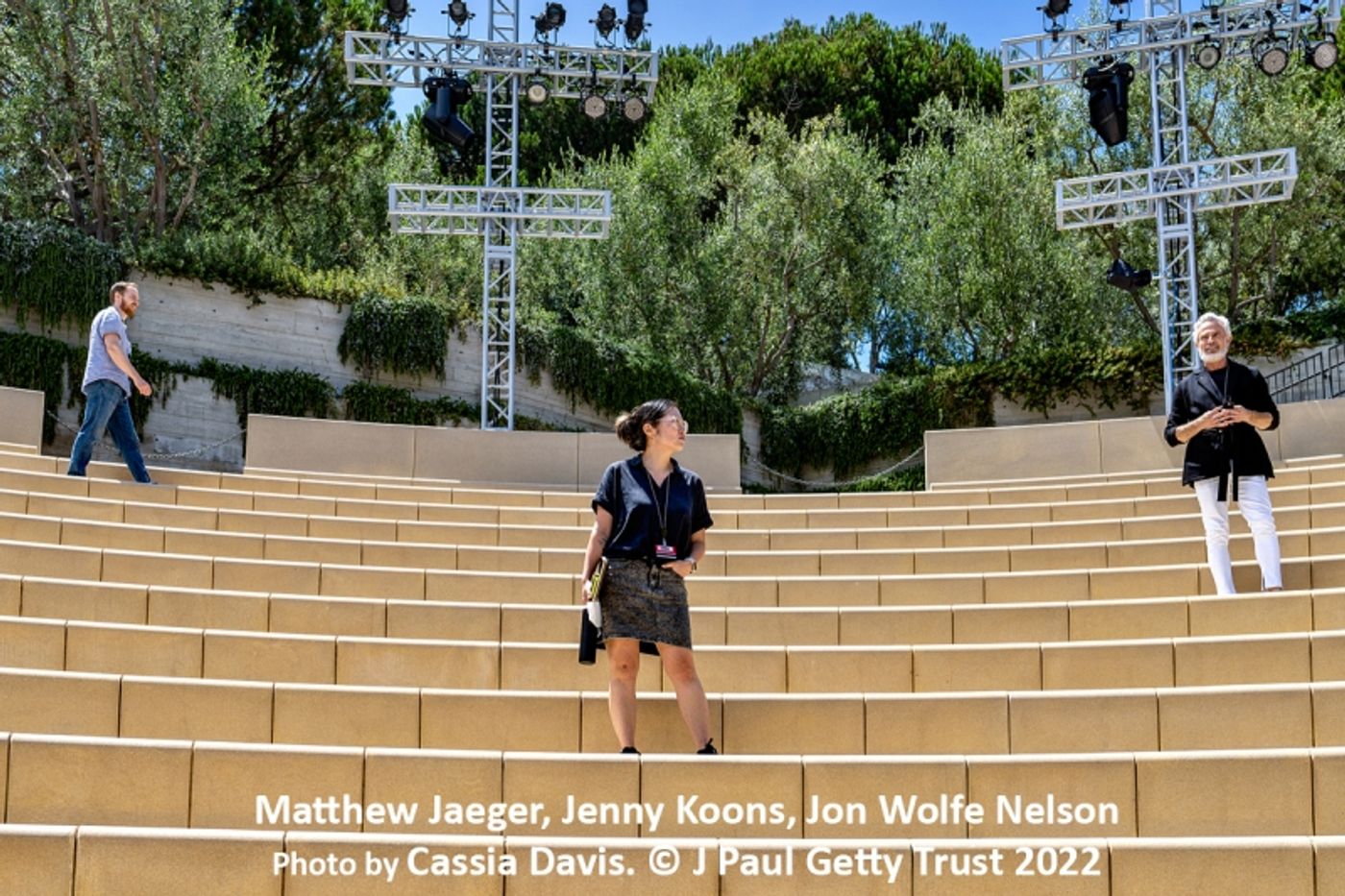 I feel like the part of the process that I'm excited about is both the humans we see on stage, and also the humans who are part of the process. There's been a change in phrase around color conscious casting in the past few years, which is understanding performers, racial identities and intersectionalities, and how they are embodied on stage knowing the identities that we have, we carry with us when we're playing a character or not. I feel like representation on stage is a big piece of the conversation we've been part of, and I'm very interested in how that expands out from solely who we see when we see a show.
I feel like the part of the process that I'm excited about is both the humans we see on stage, and also the humans who are part of the process. There's been a change in phrase around color conscious casting in the past few years, which is understanding performers, racial identities and intersectionalities, and how they are embodied on stage knowing the identities that we have, we carry with us when we're playing a character or not. I feel like representation on stage is a big piece of the conversation we've been part of, and I'm very interested in how that expands out from solely who we see when we see a show.
What aspects of a script attract you to want to direct/adapt it?
I guess the first question for me is always, 'Do we need to be telling the story right now? Why the story right now? In the onslaught of all of the stories that we're taking in at any one time, why this one? And why does this one need to be told in person.' I think that's another big one, like why this and not Netflix. Convince me that this isn't Netflix, which was a big driving force of Head Over Heels as we start to gather again. What are the spaces we're making to be in together? Yeah, that's the first thing that either catches me or doesn't.
What's in the future for Jenny Koons?
This fall the next thing I'm working on is ritual parade celebration at Long Wharf Theatre in October to close out their time at their space on Sargent Drive. We're hosting and creating an artistic multi-day event to say goodbye to that space and move into the greater New Haven. The future of that theater will be really exciting. And then, the next thing is a lot of workshops this fall for a couple of shows in the spring in New York, including Julia Izumi's show Regretfully, So the Birds Are at Playwrights Horizons. It's an exciting spring with genius artists. So what was not to love?
Thank you again, Jenny! I look forward to experiencing your Oedipus. Your three-line pitch is amazing!
The Getty marketing team in one of our earliest conversations asked, 'How would you describe this to someone who wasn't sure?' I said, 'Let this be your first Greek. If you've never been interested, and it sounds boring. This one is not boring. Come to this one first. This is your gateway Greek.'
My experience with the classics has not been that exciting.
None of ours! None of ours, which is such a bummer.
I look forward to seeing you opening night.
Thanks, Gil, for sure! Bye.
For tickets to the live performances of Oedipus through October 1, 2022; click on the button below:
Videos

